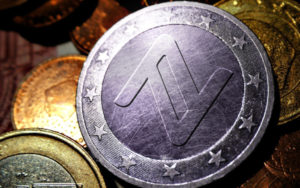
Paul Brody is a principal and the global blockchain leader at EY.
The following article is the second in a series. Read part one here.
One of the most compelling uses of blockchain technology is the ability to reliably record information and verify when and where it was added to the network.
This feature, combined with the ability to synchronize a ledger, means that all parties can get the same information at the same time and have confidence in the truthfulness of that information. The result has been a rush to treat blockchains like infallible digital notaries, recording truthful information and sharing it around. Useful, definitely, but with significant limitations.
While knowing when and where a product was made is interesting and being able to trace its history is a powerful means to reduce fraud, it isn’t an economic unit that I can buy or sell.
Digital tokens, on the other, are designed for economic activity. And blockchains are ideal for handling them.
Rx for commerce
Take something complex and valuable like a package of medicine. Not only do I need to record when and how it was created and where, I would also like to sell this product to my distribution partners and then on to pharmacies.
By creating a digital token to represent that package of medicine, not only do we record all the history of that medicine, just like a digital notary solution, we can also buy and sell that item by moving the token between accounts.
Public blockchains like ethereum are largely based on the ability to handle both complex business logic with smart contracts and a nearly unlimited number and type of digital tokens. Some tokens (like those representing money) are essentially fungible while others are unique. In either case, we believe the future of commerce is in contracts that involve the exchange of product and service tokens for money tokens.
Quite simply, the economy is going to be tokenized.
Using digital tokens, we can recreate all the sophistication of the existing financial and operational business world we live in, but with far less operational cost and complexity, and do it all within the same system. The future of business contracting is, we believe, the exchange of product and service tokens for digital payment tokens.
When combining tokenization with the complex business logic enabled by smart contracts, we can represent complex business interactions faithfully, and we can do so much more reliably than most companies can today. It’s not atypical for companies to find that their ability to negotiate agreements far exceeds their ability to actually keep to those agreements.
Bird’s-eye view
Volume purchasing agreements are a good example: most companies beyond a certain size often have multiple enterprise resource planning (ERP) systems and subcontractors and subsidiaries, which makes doing even simple things like keeping track of volume purchased across the network difficult. And if you can’t track volume, you can’t get the discount.
With a smart contract and a blockchain for procurement, it’s possible to both track total volume consumed across the business network and always calculate the correct price for each purchase order and validate each invoice.
As the token economy matures and companies put more and more assets, products, and services into public blockchains, expect the delivery of complex financial services to be digitized as well.
Everything from trade finance to receivables factoring will be a one-click activity, once participants have established a trustworthy track record of doing business on the blockchain – a record of granularity and precision that will far exceed the reliability of any traditional credit report.
To get there from here, however, the first step is for companies to embrace tokenization and move away from simply treating blockchains like fancy digital notaries.
Steam engine image via Shutterstock.
The leader in blockchain news, CoinDesk is a media outlet that strives for the highest journalistic standards and abides by a strict set of editorial policies. CoinDesk is an independent operating subsidiary of Digital Currency Group, which invests in cryptocurrencies and blockchain startups.
https://www.coindesk.com/why-companies-need-to-get-on-the-tokenization-train/
